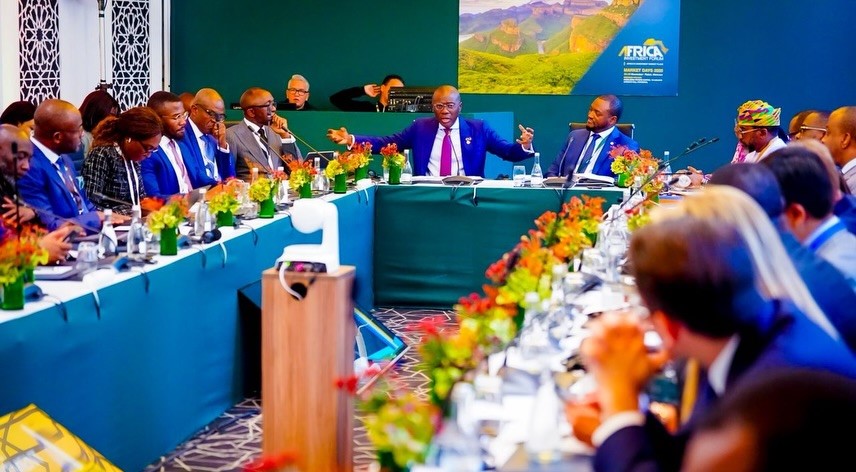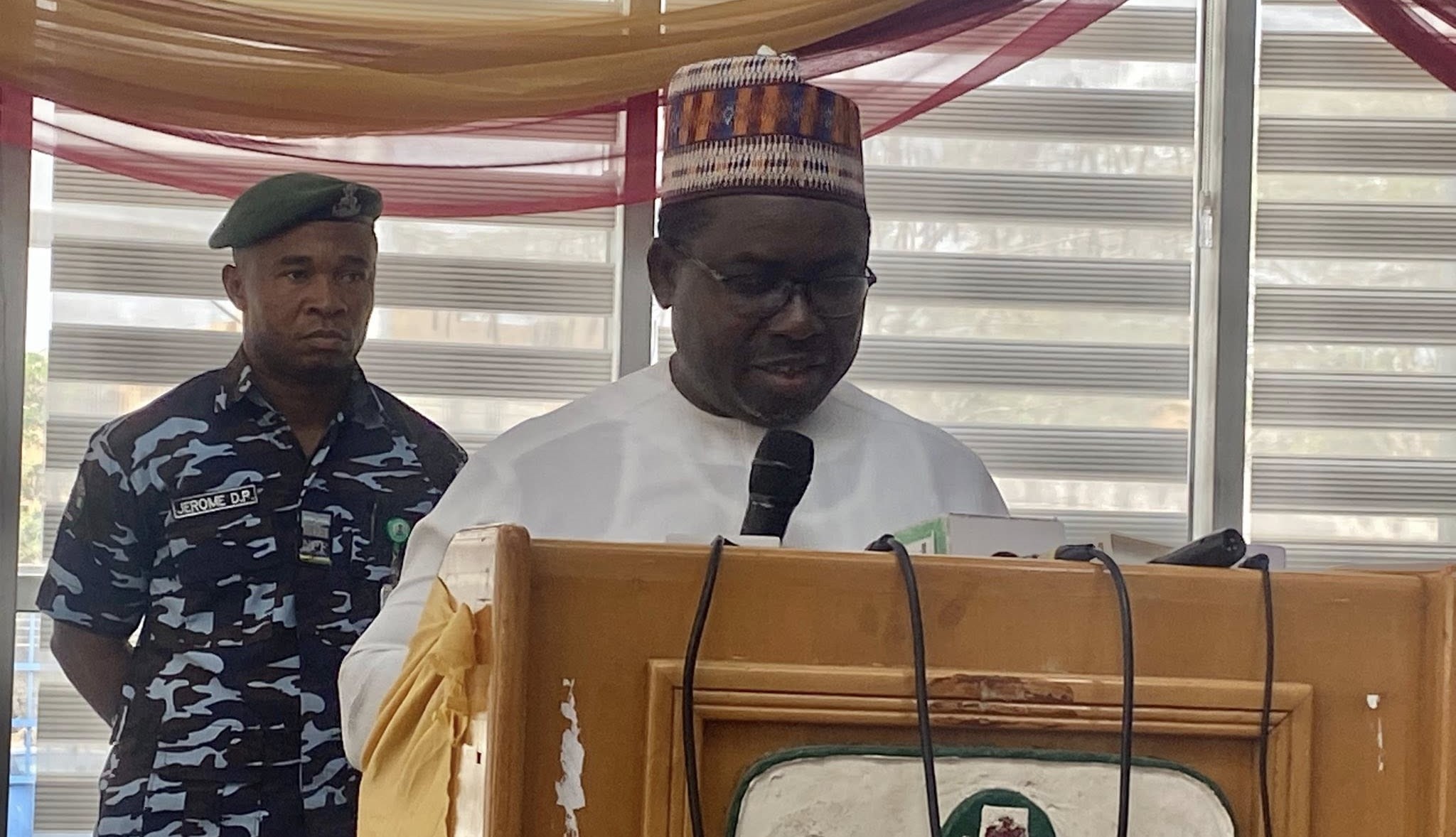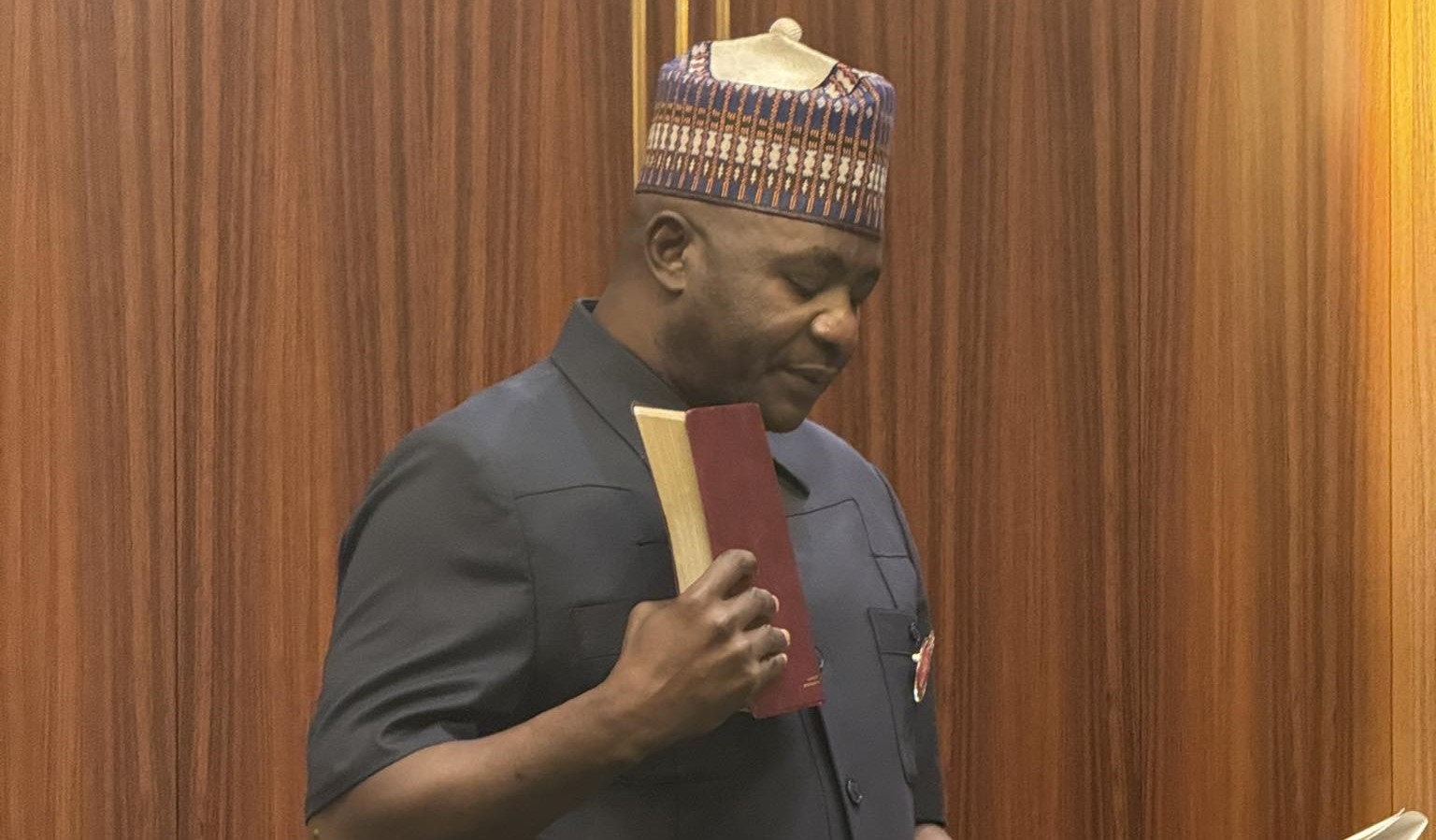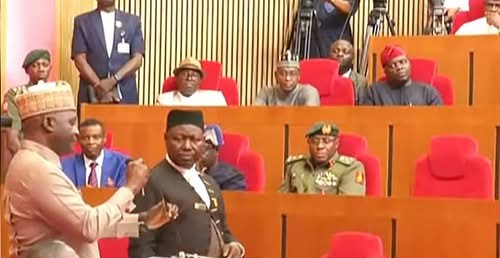

Tinubu and Misuse of Macroeconomic Concept: The Implications...
By mufutau ABDUL-YAKEEN
 President Bola Tinubu
President Bola Tinubu
The power of words cannot be overemphasised, especially when a single word is misused in a critical context, particularly by the Leader of a Nation. Imagine someone who had spent Decades criticising others for mismanagement and promising to rectify those misdeeds when given the Mantle of Leadership. However, upon assuming Office, a single Statement derailed his Administration and created widespread Economic Turmoil. This was the case when President Bola Ahmed Tinubu declared, on his very first day in Office, "Subsidy is Gone" on May 29, 2023.
This seemingly simple Phrase became the catalyst for significant Economic Challenges in Nigeria, highlighting the far-reaching consequences of misusing a Macroeconomic Concept. President Tinubu’s background as an Accountant heavily influenced this Decision. Accountants are trained to identify Financial Inefficiencies and block Revenue Leakages, and the removal of Fuel Subsidies was seen as a measure to curb Wastage and Corruption in the Petroleum Sector. However, while the intent behind the Policy might have been justified, its implementation left much to be desired.
To address Corruption and Inefficiencies in the Petroleum Sector, the Government adopted a blanket increase in the Pump Price of Petroleum. This Decision inadvertently triggered widespread panic and Economic Hardship for Nigerians. As the Yoruba Proverb wisely states, “Ori bibe ko ni oogun ori fifo” (cutting off the Head is not a cure for Headaches). The reaction to the Announcement showcased the far-reaching Economic Consequences of oversimplified Policies.
Immediately after the Declaration of "Subsidy is Gone," Petrol Station Owners fearing higher Costs, either hoarded Fuel or increased Prices. A Petrol Dealer with 10 Liters of Petrol purchased at ?200 per Liter would expect to sell it for ?2,000 to replenish their stock. However, with the anticipated price hike, ?2,000 could no longer buy the same quantity, leading Dealers to inflate Prices or halt Sales altogether. While some Nigerians understood this Business Logic, many vilified the Dealers, accusing them of exploitation.
Within 24 hours, the Nigerian National Petroleum Corporation (NNPC) rolled out new Prices that nearly tripled the Cost of Petrol, confirming the fears of many Dealers. This sharp increase had a ripple effect, leading to skyrocketing Costs of Goods and Services across the Economy. Unfortunately, the broader Economic Implications seemed to have been underestimated by the Administration. Panic Buying and a sudden spike in Living Costs further worsened Public Perception of the Policy.
President Tinubu’s Decision to appoint a Tax Expert, Taiwo Oyedele, to head the Presidential Committee on Fiscal Policy and Tax Reforms in August 2023 reflected his Accountant’s Perspective—prioritising Revenue Generation. While this choice may seem logical on the surface, it was a misstep given Nigeria’s Socio-Economic context at the time. The Nation needed a Development Economist or Welfare Economist to prioritise Policies aimed at alleviating Poverty and improving Citizens’ Welfare. This misalignment between Policy Focus and the immediate Needs of the Population exacerbated Public Dissatisfaction.
The Protests that erupted against worsening Poverty and the ongoing Tax Reform Bill underscored the Public's frustration. Tax Collectors, by their nature, prioritise Revenue Collection over the Welfare of Taxpayers, which was the last thing Nigeria needed at that moment. The failure to deliver on Critical Promises further eroded Public Trust in the Administration. For example, Youth Corps Members were promised a Monthly Allowance increase to ?70,000 starting in July 2024, but by January 2025, this Promise remained unfulfilled.
Similarly, Pensioners, already grappling with rising Living Costs, received a meager ?10,000 increase in their Monthly Allowances in States like Kwara, Home to the Chairman of the Nigeria Governors’ Forum. These half-hearted Measures only deepened disillusionment among both the Youth and Senior Citizens. Civil Servants also found themselves struggling, as the Minimum Wage increase to ?70,000 failed to compensate for the Welfare losses caused by SiG. The situation was further exacerbated by unfulfilled Promises regarding the functionality of National Refineries by December 2023.
While two Refineries reportedly began Operations in 2024, this development did not lead to a reduction in Petrol Prices, leaving many Nigerians skeptical. The Government's inability to address the root causes of the Subsidy Issue and implement Measures to alleviate the broader Economic impact revealed a lack of foresight. A more nuanced Approach could have included Targeted Interventions to address Inefficiencies in the Petroleum Sector. Instead, the blanket Removal of Subsidies triggered widespread Hardship and dented Public Confidence in the Administration.
Rather than blanket Subsidy removal, the government could have adopted targeted strategies such as tackling corruption and smuggling within the petroleum sector. Strengthening regulatory mechanisms to prevent fuel smuggling and punishing offenders would have been a more effective approach. Additionally, investing in local refineries to reduce dependency on imported fuel could have stabilized domestic prices. A Phased Removal of Subsidies, coupled with Measures to cushion the impact on Vulnerable Populations, would have mitigated the adverse effects.
The Misuse of a Macroeconomic Concept, as demonstrated by the SiG Policy, has far-reaching Consequences for a Nation’s Economy and its People. While the intent behind the Policy may have been noble, its implementation lacked the necessary depth and sensitivity to address the broader Socio-Economic Implications. To achieve Sustainable Development, Nigeria’s Leaders must prioritise Welfare-Focused Policies and appoint Experts with a nuanced understanding of Development Economics. Only then can the Nation navigate its challenges effectively and build a Prosperous Future for all.











Comments
Be the first to comment on this post
Leave a Reply